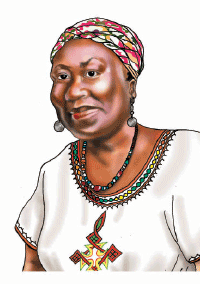The level of violence that accompanied the re-run elections conducted in Rivers State on Saturday, March 19, 2016 has made it imperative for the Independent National Electoral Commission (INEC) and, indeed, the federal government and the National Assembly to begin to consider more serious ways of ensuring the peaceful conduct of elections across the nation.
States that insist on violence and engaging in “do-or-die” elections, which Senator Ben Murray-Bruce is currently campaigning against, must be made to face the consequences of their actions. The country cannot be held to ransom and made to continue to waste huge sums of money conducting endless re-runs of elections because of the violence perpetrated by those who apparently believe that they, and nobody else, should occupy certain political positions.
Rivers should now be considered to have forfeited all the chances they are entitled to of having election re-runs conducted for them at the expense of the federal government. The 2015 elections in the state were bad enough in terms of violence; they have gone ahead and stepped up their game in these last elections, and the nation should not let it go unpunished. Both the Rivers governor, Nyesom Wike, and former governor, Rotimi Amaechi, gave clear indications by their utterances as well as their “body language” that the elections would be marred by violence. Indeed, the run-up to the elections had already witnessed a significant level of violence, seen for example in the gruesome murder of an All Progressives Congress (APC) chieftain along with his wife and child. It is time to take action against such occurrences. Why, for example, should INEC officials and ad-hoc staff like youth corps members lose their lives during elections? We, the people, must rise up to say that we will no longer tolerate such levels of violence.
What are some punitive measures that may be taken against states that make the conduct of peaceful elections impossible? First, where such elections involve positions at the national level (that is, the Senate and House of Representatives), those seats could be forfeited. There should be nothing stopping a state that insists on violence from having its quota left unfilled at the federal level. Maybe the people would learn their lesson and submit themselves to peaceful elections for the next round. Second, where elections are marred by violence and a re-run becomes necessary, then the costs should be borne by the state and the money deducted directly from their monthly allocations.
Further, compensation to families of victims of electoral violence should equally be paid by the state.
Perpetrators of electoral violence (as well as other crimes, like the dizzying level of corruption which allegedly took place under the Goodluck Jonathan administration) are unmindful of the great psychological harm they bring upon us as a corporate body. The violence in Rivers is already being interpreted around the world on the social media as “a setback for Nigeria and a shame”. What happens in one place affects us all and influences the world’s perception of us as a people and what treatment is meted out to us both in our country (in embassies, for example) and as we travel around the world. That is why we cannot fold our arms and allow individuals, states, or even the federal government, to do as they please. The citizens must recognise and use the power they have to demand accountability from those to whom they have entrusted the conduct of their affairs. Let Rivers be penalised for the grievous offence of electoral violence.
On another front, it is equally important to draw attention to the horrific violence, though of a non-political sort, being perpetrated by Fulani herdsmen in several parts of the country, with the most celebrated one arguably being the merciless killings of the Agatu people of Benue State. Many Nigerians, including some noted journalists, have been wondering why President Muhammadu Buhari has refused to take decisive action on these happenings, the most basic being a strong condemnation of the acts and a call on our law enforcement agents to bring the perpetrators to book. In her article on The Punch of Thursday, March 24, 2016, Abimbola Adelakun came down heavily on the President, arguing that the statement issued on his behalf by one of his spokespersons, Garba Shehu, “smacks of administrative reticence and overall, a moral cowardice”. The President had merely expressed shock at the killings, promising to “act immediately to address the root causes of the problem” once investigations were concluded.
Ms. Adelakun was particularly irked by the mention of “root causes” – as if those causes, once identified, could ever serve to justify the killings. The point is, are some things not just wrong and unacceptable, not arguable for under any kind of attenuating circumstances? The dangerous reality is that there is a real fear that the violence might increase if the perpetrators sense that the “powers-that-be” are reluctant to call them to order and make them pay fully for their criminal actions. Also, the President should be mindful to not allow his apparent reticence be interpreted as partiality towards “his own”. Let him remember his words on the day of his inauguration: “I belong to nobody; and I belong to everybody.” That was a promise to be the President of all. It is now imperative for him to make the Agatu people feel that he belongs to them as well.

- Advertisement -
- Advertisement -
Must Read
Rema claims he is as good as Burna Boy, Wizkid, Davido
Rema in a now-viral post on X, sent tongues wagging after insinuated he is now in the league of the three music...










